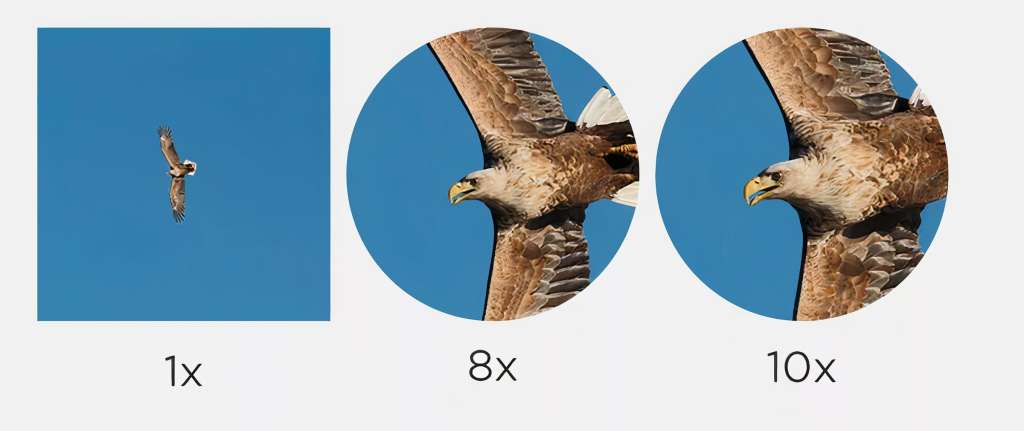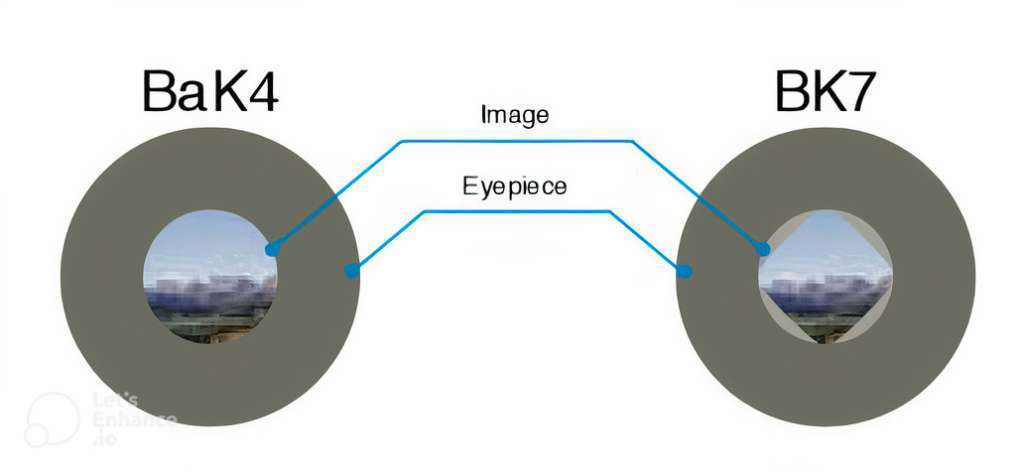Binoculars are versatile instruments that allow us to observe the world around us more closely and see details that are often hidden to the naked eye. Whether for nature observation, bird watching, sports events, or travel, selecting the right binoculars is crucial to ensure sharp vision and an optimal observation experience. In this comprehensive guide, we provide detailed information to help you choose the perfect binoculars for your needs.
- Consider the magnification factor: The magnification factor is one of the most important features of binoculars and determines how much the image is enlarged. For example, a magnification of 8x means the object appears eight times closer than with the naked eye. However, caution is required when choosing the magnification factor. A higher magnification factor results in a narrower field of view and reduced brightness. For general nature observation and hiking, a magnification of 8x to 10x is ideal.

- Pay attention to the objective lens diameter: The objective lens diameter refers to the size of the front lenses of the binoculars. A larger objective lens diameter allows for better light gathering and therefore brighter images, especially in poor lighting conditions such as twilight or cloudy skies. However, a larger objective lens diameter also means higher weight and bulkier construction. For general use, binoculars with an objective lens diameter between 30mm and 42mm are well-suited.
- Take note of optical quality: The optical quality of binoculars significantly influences the viewing experience. High-quality glass and lens coatings reduce reflections and provide sharp, contrast-rich vision. When selecting binoculars, look for models with prisms made of BAK-4 glass, as they offer better light transmission and sharpness compared to cheaper types of glass. Additionally, consider lenses with multi-coatings to minimize disturbing reflections and obtain a clear image.

- Check the ergonomics and weight: A binocular should fit comfortably in your hand and be easy to use, especially during longer observation sessions or outdoor activities. Look for an ergonomic design with a grippy surface and an appropriate eye relief to enable comfortable viewing. Additionally, the weight of the binoculars should be considered, particularly if you plan to carry it for extended periods or take it on hikes. Lightweight models made from high-quality materials such as magnesium alloys are a good choice to reduce the strain without compromising durability.
- Waterproofing and durability: If you intend to use your binoculars outdoors, it is essential that they are waterproof and durable to withstand the elements. Look for models with rubber armor that provides good protection against shocks and falls. Additionally, the binoculars should be protected from dust and moisture to ensure long-term use. Pay attention to specifications like „waterproof“ or „fog-proof“ to ensure your binoculars offer the necessary protection, especially if you plan to use them for activities like hiking or sports events.
Conclusion: Choosing the right binoculars is crucial to ensure sharp vision and an optimal observation experience. Consider the magnification factor, objective lens diameter, optical quality, ergonomics, weight, as well as waterproofing and durability. By carefully weighing these factors and considering your individual needs, you will find the perfect binoculars to explore and capture every detail of nature’s beauty.
Pictures:


